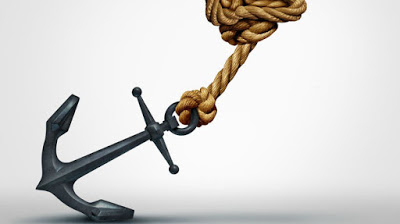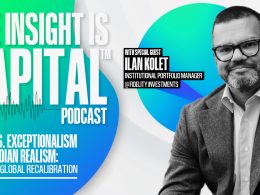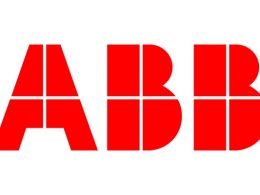Complete Transcript:
CONSUELO MACK: This week on WealthTrack, why rock climbing government bond investor Robert Kessler says we still haven’t seen the peak of the generational bull market rise in U.S. treasury bonds and why other investment routes are much more dangerous to your financial health! Great Investor Robert Kessler is next on Consuelo Mack WealthTrack.
Hello and welcome to this edition of WealthTrack. I’m Consuelo Mack. Three years into an economic recovery, it sure doesn’t feel like one. We are even beginning to hear the dreaded “R” for recession word here in the U.S. A recent headline in the Financial Times read: “Blue-Chips Raise Recession Fears.” The FT reported that “estimates of revenue growth for the largest us companies are being scaled back sharply by Wall Street analysts, signaling a mounting risk that the world’s largest economy may enter recession later this year.”
It is a development we have talked about with many WealthTrack guests. Sales and earnings estimates are being scaled back by analysts and companies alike as the global outlook becomes murkier. Recession is already happening in Europe. The so-called peripherals- Greece, Spain and Italy- are there. Even mighty Germany is feeling the pressure from its weaker neighbors. Germany’s central bank recently estimated its economy had grown “moderately” in the second quarter. According to The Wall Street Journal, that’s “shorthand for growth between zero and five tenths of a percent.” Not exactly reassuring for Europe’s largest economy, which its finance minister rightly describes as the “Eurozone’s anchor of stability.”
So if global economies and company sales and earnings are slowing, what does it mean for the markets? That is a source of heated debate and both sides are being reflected in the stock and bond markets. On the one hand, investors have been buying dividend paying blue chip stocks for their dividend income and their financial strength. The S&P Dividend Aristocrats Index, which is made up of 30 companies that have consistently raised dividends for at least 25 years, has traded around record highs recently. How well will their prices and dividends hold up in a global slowdown?
On the other hand, yields on U.S. treasury bonds have extended their multi-decade long decline over the last year, lifting the prices of the underlying bonds, as global investors sought their safety and liquidity. It has also helped that Federal Reserve Chairman Ben Bernanke has clearly spelled out the Fed’s intentions to keep interest rates low. And he has reiterated time and again that the Fed is “prepared to take further action as appropriate to promote a stronger economic recovery.” As PIMCO bond guru Bill Gross put it, in explaining why he is holding 35% treasuries in his PIMCO Total Return Fund: “don’t underweight Uncle Sam in a debt crisis.”
This week’s WealthTrack guest has been overweighting Uncle Sam in his portfolios for the ten years plus that I have been interviewing him. It’s been an extremely profitable run and he is sticking with it. He is Robert Kessler, founder and CEO of Kessler Investment Advisors, a manager of fixed income portfolios for institutions and high net worth individuals with a concentration in U.S. treasury debt. I began the interview by asking him about his long standing and contrarian investments in treasuries. What is he seeing that Wall Street is not?
ROBERT KESSLER: I think Wall Street is seeing all the same things I'm seeing. We're just really interpreting those things a little bit differently. I look at the interest rate environment that we're in right now, and most people think that this is created by Ben Bernanke, the Central Bank, and zero is some artificial number. The fact of the matter is, zero is a number that exists all over Europe now, and, in fact, that number is negative in five, or six, or seven countries in Europe.
CONSUELO MACK: So this is zero interest rates or negative interest rates on government debt, short-term government debt.
ROBERT KESSLER: Short-term government. Actually, even longer term. In Switzerland, it's minus .25. So people who have a lot of money, and they want to park it someplace, they actually have to pay the government to put it there. Now, we haven't seen that before. If you look at the way Wall Street's interpretation of that is, they'll say that that's totally artificial. That's not reality. And the reality really is that big money right now doesn't want to go anyplace with it. It doesn't matter if it's corporate money, where they're sitting with trillions of dollars, or individuals. What they want to do with it is make sure it's totally safe. And money has a real value. Most people don't look at money properly.
Money is a commodity. Just like gold, or like grain, or corn, or anything else. To store it someplace, it costs you some money. So if you want to store it in Switzerland, they're going to charge you a quarter of one percent. When we look at zero in the United States, to make this really interesting, and people say, "Well, where do you think interest rates really are going?" And now I really look at everyone and say, "I don't know. But they certainly could go negative," meaning that the whole treasury curve, which is two-year, five-year, ten-year, thirty-year, all of that curve could all go down to zero. And everyone thinks there's so much out there to buy. Look at all those treasuries. Come on. We have so much debt. Someone has to support it. What actually is there is, if I don't want to sell my treasuries and you don't want to sell your treasuries, there aren't that many treasuries. And that's why rates really can go quite a bit lower.
CONSUELO MACK: I know that you hear from other people on Wall Street. And if someone on the other side were looking at you and saying, Robert, okay, so interest rates are at zero. Short-term interest rates are at zero. Investors have other choices. Zero is not a good rate. That's what they're saying. It's not a good return. Therefore, even Ben Bernanke, who is keeping short-term interest rates at zero, which is a reality, and is saying that, I'm going to keep interest rates at zero probably through 2015, if not beyond; even he is saying the reason that I'm keeping interest rates so low, one of the reasons is I want people to invest in risk assets. I want people to go and buy stocks and, you know, finance the economy, where they get a higher return. I'm going to make investing in treasuries so unattractive that I want them to buy something else, and, therefore, help the economy.
ROBERT KESSLER: In the environment we're in, which is a deleveraging, deflating environment, a real return on money may actually be negative, meaning that if inflation actually goes negative, one percent is a pretty good return. And the only reason all of this is happening is because there's no demand in the marketplace. And as much as Japan tried to do something, you can't create that demand. And that's exactly what Ben Bernanke's talking about. He's saying, "If I get these rates low enough" … there was a Swedish experiment, which is interesting, when Sweden had a very difficult time, the Central banker said, "You know, we ought to think about going negative." Imagine that. The rate overnight won't be zero. It will be minus 50.
CONSUELO MACK: Right. So I pay you for the privilege of owning a Swedish government bond.
ROBERT KESSLER: A half of one percent. That will certainly induce everyone to go buy something else. And the answer is, when there's no demand from the private sector, I don't care how much money you produce, I don't care how much you print- if the private sector doesn't want to borrow it, you have no marketplace. We have what we call no velocity. No movement of money. So that's the environment we're in. And as to what an investor needs to look at, is not what the real return is on a treasury against inflation from last year, but where will it be next year. And next year looks like we're going to be looking at, if not deflation, certainly lower prices.
CONSUELO MACK: Let's talk about kind of, there are different things that you're looking at. So one of the things that Wall Street would say is that, you know, number one, inflation isn't going to continue to go down, because, like, it never does for any length of time, and, therefore, at least in our recent experience, and all our models are predicated on the fact that we're going to get some inflation, and with all the stimuluses the Fed is doing, central banks around the world are doing, we will get inflation. You're saying, no, the reality is we're in a deflationary environment, and, in fact, you know, we're not going to get inflation for a long time. Why?
ROBERT KESSLER: Let me give you the Japan example. The Japan example is a very good example, because we claim in this country that we would never do what Japan did.
CONSUELO MACK: Right. No one wants to be a Japan. That's the blanket statement everyone makes.
ROBERT KESSLER: We are doing exactly what Japan did. And interestingly enough, in 1997, that's seven years after the deep recession/depression hit Japan, an administration came in, 1997, and said, we've got to contract the economy. We've got too much stimulus out here. We've got to tighten things up. That will make things better. The rates on the ten-year in Japan at that point were around two percent. Within a year or two they dropped to .8, and the deficit went straight up, even though everyone wanted to bring it down.
And the reason was, you can tighten everything up, but again, if there's no demand and people perceive that prices are coming down, cash looks very good. And now we're talking money. And money is really important, because money takes on a tremendous value in a deflating economy. If you're a gold bug, the argument is inflate, inflate, because that's a terrific thing to happen. All of this stimulus is going to cause inflation. And, in fact, in this kind of an economy, it doesn't matter what stimulus you put in, because stimulus only works if someone wants to spend the money. And the fiscal side of it, which is the government side of it, right now, looks like, as we get into the fiscal cliff that people love to talk about, the fact is that will be very contractionary on the economy. So I would argue that if we get into that position, you will see rates go even further down.
CONSUELO MACK: One of the realities that you've identified at Kessler Investment Advisors as well is that zero interest rates can stay zero for a long time, or go lower for a long time.
ROBERT KESSLER: I think in this particular case, there are so many people who keep saying we've never seen this before. We've never seen this exact same thing, but we've seen this before. And I suspect that interest rates will stay extraordinarily low until we get out of this balance sheet problem of individuals getting rid of some of the debt. It's 25% of homeowners are underwater. You have this huge unemployment problem, and the number that came out today, the Philadelphia Fed Index, actually had an employment number that would suggest, in this month coming up on the employment news, that employment could go negative again. Now, if you stop and think about that, the argument has been quantitative…
CONSUELO MACK: You mean job growth could go negative.
ROBERT KESSLER: Job growth will go negative. If you stop and think about how serious that is, we've had quantitative easing one, quantitative easing two, and probably something more. None of that has helped. And it's simply because money is going no place. And the people who have it are buying whatever sovereign they feel safest in.
CONSUELO MACK: So Robert, another reality that you have identified at Kessler Investment Advisors is that instead of what Wall Street is telling you- I'm going to make you money, and that the traditional investments that make money, like stocks, that have over the last, you know, 40 years, whatever it is, in the post-World War II period- that, in fact, that investors are saying, "No. No. No. You don't understand. My first principle is I don't want to lose money."
ROBERT KESSLER: We have an enormous number of investors leaving the stock market now and going into fixed income. Obviously, they feel that that's too volatile, and that slow transition is probably going to continue for some time. But the concept of an investor saying, "I don't want to lose money," it usually means I want to make a lot of money, but I don't want to lose any money. And you have to be able to explain to make a lot of money you're going to be at risk to lose a lot of money. I would suggest the big problem we all seem to have is we can't distinguish between a savings account, your pension account, your IRA, and an investment account.
CONSUELO MACK: And you're saying it's very important to differentiate between your investing and your savings. What's the difference?
ROBERT KESSLER: The purpose of a savings account, as we all grew up, and we saved something, is to know it will be there. So, obviously, the return isn't important. It's the return of the money. And so I look at a savings account or a pension account, you cannot lose there. And that's why I've suggested for years that you buy a zero coupon U.S. Treasury, meaning that the treasury will pay off in a certain period of time, because you have to have that money. That's a savings account. An investment account is, have a good time.
The odds are, these days, for the last ten years, no one has made any money in the stock market unless you happen to buy at the right time, sell at the right time, and buy… and none of us do that. We're all random buyers, so we all make mistakes. So the average person really doesn't distinguish between those two pockets of money, and I would suggest that's becoming very relevant now, because suddenly, if you look at the average homeowner, let's take the homeowner, you have a decrease of $7 trillion in the value of what they had over the last two, three, four years. $7 trillion. An enormous amount of money. And if you look at their median net worth of that same homeowner, it's gone from $126,000, that's the average person, down to 77. That means they lost 39% of their money, of what they really thought they had. So all of these questions become extremely relevant if we talk reality, and I think that's what we should be talking.
CONSUELO MACK: The fact that rates are coming down all over the world gives fuel to the argument on the other side, and that is, I can't tell you how many people have told me that somewhere around 60% of the companies in the S&P 500 now are offering dividend yields that are greater than the yields on the ten-year Treasury note, and this is a once-in-a-lifetime opportunity.
ROBERT KESSLER: And they should. And they should, because everyone has done terrible with all of these companies. So they should give you some of your money back. But the best argument I can use is that these are the same companies that don't know what to do with the cash they have, and they're not out there buying any other companies. There are mergers going on, but they're not spending the money. So if they're not spending the money, what are you spending the money for? And then at the same time, there are no big dividend payers. There are no big cap stocks that are not going to be affected by a global deterioration in the economies that we're looking at. They all will be. And if the stock market comes down, which I suspect it probably will, they'll come down, too.
What do you care if you're getting 4% if it drops 40%? That is the risk you take. So you think, well, this is a terrific deal, because in the long term, four percent looks good. It doesn't look that good if you go back to 2008. You had an AT&T that was paying a very nice dividend, and it dropped 47%. I don't think that's what you want. And so I suspect that if you didn't want any of the other stocks, you probably don't want those stocks either.
And, again, I'm back to the subject, you do not want to lose money, because in an economy where prices are coming down, there's tremendous opportunity. Everyone thinks that I'm being pessimistic about this. If you have money, and the price keeps coming down, the money gets more and more valuable. That's why people are parking it where they think they can get it back, which ends up being in sovereign debt or good sovereign debt.
CONSUELO MACK: So Wall Street would say this is an example of extreme pessimism, and the times of extreme pessimism are when you make the most money by buying the securities that everyone else is shunning.
ROBERT KESSLER: But that has to be the excuse that we use, otherwise you wouldn’t buy anything from Wall Street. It's a silly argument. We're faced with a real serious problem in this country, as it is in Europe, but in this country, especially right now, because we have a disorganized kind of Congress, we have a situation where no one can get together on what to do, and I suspect there really is a reason for that. No one knows what to do. You can take this side, or you can take this side. It really doesn't matter. The net result is, there are no simple solutions, and we're certainly not going to get one, from what I can see.
And so this thing is going to linger, and the question is, do you need a crisis to begin to really try to solve this? Maybe that's what happens. Maybe you do get a crisis. But this is not being pessimistic. I'm just telling you what's happening. And the only reason we can make money in this market is because we really don't care about what anyone else says. The key to this market right now is to follow whatever your own instinct is. If you don't understand it, and it doesn't make sense, and you can't sell your house, and all the terrible things that we all know are happening, happen, well then, why do you want to go out and buy stocks? I mean I'm not doing this just because I want to hit the stock market. But this is a very serious period of time, and I don't think people are treating it as serious as they should.
CONSUELO MACK: So most investors, most individuals, in their retirement savings, have gone the traditional route, and they certainly do not own a lot of treasury securities. So what are you advocating? That they basically, you know, liquidate, pay the taxes, everything, and put them into treasuries? I mean, you know, what are our options?
ROBERT KESSLER: I'm going to do the same thing I did last time you were kind enough to have me on the show, I think, at the end last year, and I said, go out and buy long-term 20-year, that's a good thing to do, zero coupon U.S. Treasuries. They will yield about 280, 2.8 percent. Nothing terrible about that. In the last six months, since I've said that, they have returned 11%.
CONSUELO MACK: In six months.
ROBERT KESSLER: In six months. Better than the stock market and everything else. I will make the assumption that 280, 275 is not a terrible return. If you have this opportunity that I'm talking about, that rates actually come down, because if rates come down, a lot of people feel that 30-year, 20-year treasury will come down a point; if they come down a point, then you make 25% return. Worst-case scenario? You're making 280. Not so terrible. That's your retirement fund. That's your serious money.
As far as the other money goes, I would be in this wait-and-see attitude. I'm really not trying to be pessimistic, and I know it sounds pessimistic, when I'm saying negative things, but those negative things are happening regardless of what I tell you. They're happening in Europe. And this doesn't even count the fact that we could have an oil disruption. We could have all the usual things that seem to be on our plate all the time. So sure, I think for a retirement fund, right now I'd be out buying all the treasuries I could get my hands on. I mean, but I think when you talk about the investment money, the money that you have to invest, I think you want to stay very, very cautious.
CONSUELO MACK: All right. Very cautious at this point. So the One Investment for long-term diversified portfolio is?
ROBERT KESSLER: I would say zero coupon treasury, if it's a retirement fund. If it's in a retirement fund, there's absolutely-- there's no issue about time. You're keeping it for a long period of time. But the other money that you have is money that really has to be put to use now, and you don't want to waste it. It's not going to be there necessarily 20 years from now. It's money you're going to invest in. Well, I can't find anything to invest in. So keep it in cash. I know I'm kind of escaping by saying that, but I don't think there's anything wrong with cash.
CONSUELO MACK: So, you know, you said earlier in the interview that you're really not a pessimist, that you're actually an optimist. So what are you optimistic about?
ROBERT KESSLER: I think that people needed to go through this change in attitude towards how they spend money, what they think of money, and that change is taking place. There's a realism coming into the marketplace. I think that makes for a better country, and that makes for a better people in the end. It doesn't mean it's easy, and it doesn't mean this is going to be a very comfortable change. But it will probably be, as it usually is, for the better. What we don't want to see is some serious kind of crisis that makes it worse.
I think the problems in the United States are solvable, if we can get a Congress to probably do something together. There are things to do here. But you can't have 20 million people without a job, 45 million people on food stamps, and a bunch of people without healthcare, and then say, "Well, we don't really have any problems here, and I think we should buy some stocks." I think that attitude is exactly the wrong attitude. I think the problem becomes you have to pick up demand, and there is no demand in our system right now, and with good reason. People are pessimistic.
CONSUELO MACK: So what is it going to take to turn around demand?
ROBERT KESSLER: I don't know. I don't know. It's a process. And the process is this horrible deleveraging, this pay down the debt, and people have to consciously understand when you pay down the debt, you're increasing the value, in this case, of the currency. Because remember, the currency can buy everything cheaper. The U.S. dollar is the place to be. I'm very optimistic about the dollar. I think that's a great place. I think the treasury market looks terrific here. That is the country. In between, there are problems that have to be solved.
CONSUELO MACK: Well said. Robert Kessler, thank you so much for joining us from Kessler Investment Advisors. And we will have you on again, you know, in a year, and see how you've done, as you have done extremely well over the last seven years on Wealth Track. So thanks for joining us again.
ROBERT KESSLER: Thank you. Thank you for having me.
CONSUELO MACK: At the conclusion of every WealthTrack, we try to leave you with one suggestion to help you build and protect your wealth over the long term. As we did last week, we are recommending a book for summer reading. This one is the choice of guest Robert Kessler. It’s called The Great Depression: A Diary . It’s by Benjamin Roth and it was published by his son in 2010, many years after his death. Roth’s diary is a compelling and eye opening account of the Depression seen through the eyes of an ordinary middle -class American. You will recognize the policy debates about inflation, skepticism towards big government, and worries about too much stimulus, that as Kessler says were “prevalent, recurring, and in the end, all wrong.” You can make up your own mind.
I hope you can join us next week for a shocking discussion about the cost of investment fees. According to our two guests- legendary financial consultant Charles Ellis, who is exclusive to WealthTrack, and top financial advisor Mark Cortazzo- fees are much higher than you think. They’ll tell us how to fight back. If you would like to watch this program again, please go to our website, wealthtrack.com. It will be available as a podcast or streaming video no later than Sunday evening. And that concludes this edition of WealthTrack. Thank you for watching. Have a great weekend and make the week ahead a profitable and a productive one.
Copyright (c) WealthTrack.com











